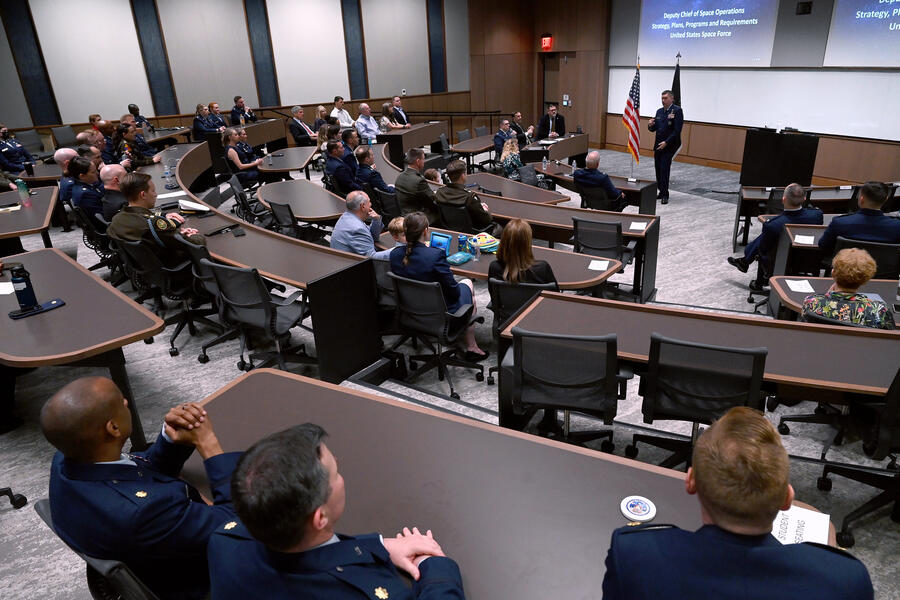U.S. military officials call it a "kill web," a form of next-generation surveillance and warfare unlike any before.
It's China's recent launch of more than 470 intelligence, surveillance, and reconnaissance, or ISR, satellites, a move that could enable the world's second-most populous country to monitor and respond to threats on Earth from outer space.
This could involve, say, disabling an adversary's communication and ground-control capabilities; launching missiles at naval vessels; deploying drones on military bases; and sending false radar signals to sow confusion—all at once in a coordinated attack on multiple locations and networked systems.
In response, U.S. Chief of Space Operations General B. Chance Saltzman announced that "the Space Force we have is … not the Space Force we need." To stay competitive, Saltzman continued, the branch must "transform into a warfighting service now," working in tandem with the U.S. Army, Navy, Air Force, and Marine Corps to protect U.S. interests.
What does the shift mean for the newest branch of the military, established in 2019 to protect the country's vast suite of space assets? How do our own country's ISR satellites stack up, and how might diplomacy help pave a path to peace?
These are among the questions posed and probed in classrooms at the Johns Hopkins School of Advanced International Studies, thanks to a partnership launched in 2022 between the Space Force and JHU. The collaboration marks a pivotal shift in how the military trains and educates its leaders. Rather than create its own military university like other branches of the armed forces, the Space Force opted to team up with an institution to offer programs that combine a traditional military education with graduate-level courses in areas such as international relations, geopolitics, and diplomacy, says Gregory Miller, a political scientist and dean of space education for the Space Force.
The partnership positions Johns Hopkins as the core education provider for the roughly 15,000 military and civilian personnel of the country's newest military branch, with plans to evolve alongside developments in technology, space capabilities, national security, and international relations. Held at the Johns Hopkins Bloomberg Center in Washington, the school's two programs culminate in a master's degree in international public policy: the Schriever Space Scholars Program for midcareer officers and civilians, and the West Space Scholars Program for senior officers and civilians.
The courses cover topics like military history, joint planning, leadership and ethics, international relations, and international security. "We focus, for instance, on the causes of conflict, how to avoid and resolve conflict, and issues related to human security," Miller says. "Students read about war theories and learn how to strategize and evaluate a [military] plan by weighing risks, uncertainties, and assumptions."
Svetla Ben-Itzhak, a political scientist and assistant professor of space and international relations, says it's important to realize that the mission of the Space Force remains unchanged since the branch originated almost six years ago. "Namely, [our mission is] to secure U.S. national interests in, from, and to space," she says. "As an educational institution, this is what we [focus on and] teach," while giving students opportunities to take courses aligned with their interests and long-term goals.
As the West and Schriever space scholars' programs prepare to graduate their second cohort this spring, both Ben-Itzhak and Miller say their students benefit from the rigor of academics at SAIS. "Ultimately, we want to teach our students to think critically and strategically—and walk away with the skills and knowledge they need to continue serving the country, whether in the military or as a civilian," Miller says. "That's exactly what they're getting."
Posted in Politics+Society








